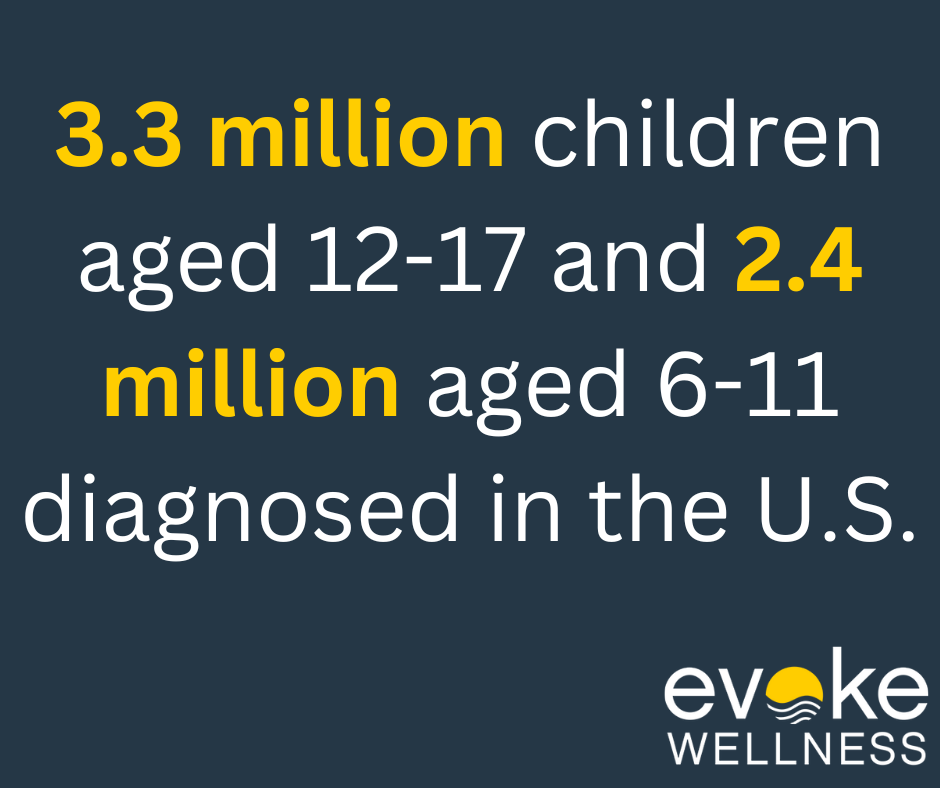You’ve probably heard about ADHD and addiction separately, but did you know they often go hand in hand? Recent studies show that adults with ADHD are 2-3 times more likely to develop substance use disorders. This dual diagnosis presents unique challenges, but understanding the connection can be the first step towards effective treatment.
In this article, we’ll explore:
- The link between ADHD and addiction
- How mental health plays a crucial role
- Treatment options for dual diagnosis
By the end, you’ll have a clearer picture of how these conditions interact and the resources available to manage them effectively. Let’s dive in and unravel the complex relationship between ADHD, addiction, and mental health. Call us at (866)429-2960 today or reach out online.
Understanding the Connection Between ADHD and Addiction
ADHD and Substance Abuse
Attention Deficit Hyperactivity Disorder (ADHD) is a chronic neurological condition that affects focus, attention, decision-making, and impulsivity. Individuals with ADHD often struggle with self-regulation, making them more vulnerable to developing addictive behaviors.
Stimulant Medication Misuse
Many individuals with ADHD are prescribed stimulant medications like Adderall and Ritalin to manage their symptoms. While effective when taken as prescribed, these medications carry a high risk of misuse and addiction, especially among those without an ADHD diagnosis. Prescription stimulant abuse has become a serious issue nationwide.
Dual Diagnosis and Treatment
ADHD and substance abuse disorders often co-occur, requiring specialized treatment approaches. Evoke Wellness offers comprehensive dual diagnosis programs that address both the symptoms of addiction and the underlying mental health condition. Their treatment modalities include medication-assisted therapy, behavioral interventions, and holistic wellness practices to support long-term recovery.
Overcoming Dependence
For those struggling with prescription stimulant addiction, professional help is crucial. Evoke Wellness has extensive experience in treating dependence on ADHD medications and helping individuals safely recover through personalized treatment plans, including acute detox, residential programs, and ongoing support.
ADHD Symptoms and Effects
Prevalence & Impact
ADHD affects a significant portion of the population, with 3.3 million children aged 12-17 and 2.4 million aged 6-11 diagnosed in the U.S. Most children with ADHD also struggle with other mental health or behavioral disorders, highlighting the widespread impact of this condition.
Common Symptoms
Those with ADHD often experience difficulty focusing, impulsive behavior, and excessive restlessness. Stimulant medications like Adderall can help individuals with ADHD feel “normal” and improve concentration. However, misuse of these drugs by those without ADHD can lead to dangerous side effects like aggression, paranoia, and addiction.
Treatment Approaches
While medication plays a role, a combination of medication and behavioral therapy is the most effective treatment approach for ADHD. For those struggling with ADHD and substance abuse, comprehensive treatment programs like those offered by Evoke Wellness can provide the necessary support for long-term recovery.
How ADHD and Addiction Develop
Risk Factors & Onset
Many mental illnesses, including ADHD, often begin developing during adolescence. Around one-third are diagnosed before age 14, and nearly half before 18, according to Evoke Wellness. Risk factors like genetics, trauma, and high stress increase vulnerability.
Common warning signs include disrupted sleep, mood swings, sensitivity to stimuli, and cognitive issues. Addiction shares many of these risk factors and frequently co-occurs with ADHD and other mental health conditions.
Stimulant Misuse
Individuals with ADHD may misuse stimulant medications like Adderall to enhance focus and cognitive performance. However, Evoke Wellness warns that non-prescribed stimulant use increases risks of dependence, anxiety, heart problems, and mood disturbances.
Side Effects & Treatment
Up to 25% of those taking Adderall experience headaches or migraines, often due to blood vessel constriction and neurochemical imbalances. Treatment may involve medication adjustments, medical detox, therapy, and lifestyle changes.
Comprehensive, personalized care addressing both ADHD and addiction is crucial. Medication-assisted treatment like Sublocade can aid recovery when combined with behavioral therapy and support programs.
Treatment Options for ADHD and Addiction
Dual Diagnosis Treatment
Seeking help from a dual diagnosis treatment center is crucial if you struggle with both ADHD and addiction. These centers evaluate your symptoms, develop a tailored plan, and provide comprehensive care through individual and group therapy, medication management, and more.
Residential Programs
Residential treatment programs offer a comprehensive approach to overcoming stimulant addiction like meth or Desoxyn. Key elements include safe medical detox, intensive therapy to address root causes, dual diagnosis support for co-occurring issues, and aftercare planning.
Medication-Assisted Therapy
For ADHD treatment, non-stimulant medications like Strattera may be used, especially if you have a history of stimulant abuse. Medications like bupropion or naltrexone can also help reduce cravings and prevent relapse during addiction recovery.
FAQ about ADHD and Addiction
What is ADHD?
Attention Deficit Hyperactivity Disorder (ADHD) is a chronic neurological condition that affects focus, attention, and impulsivity. Around 6.1 million children are diagnosed with ADHD annually in the US.
How is ADHD treated?
ADHD is commonly treated with stimulant medications like Adderall, Ritalin, and Concerta. While effective for managing ADHD symptoms, these drugs can be habit-forming if misused or taken without a prescription.
What are the effects of stimulants on non-ADHD individuals?
For those without ADHD, stimulants like Adderall produce an intense euphoric feeling and increased energy due to excessive dopamine release. This can quickly lead to dependence and harmful side effects.
Are all ADHD medications equally addictive?
Some ADHD medications carry higher addiction risks than others. Desoxyn (methamphetamine), for example, is chemically identical to illicit crystal meth and has extreme potential for abuse and addiction.
At what age do mental health issues often start?
While mental illnesses can develop at any age, about one-third are diagnosed before age 14, and nearly half before 18. Early warning signs in adolescence are common for conditions like bipolar disorder and schizophrenia.
Can ADHD medications cause aggression?
Yes, the FDA has warned about the risk of angry, violent outbursts in children and adults taking methylphenidate (Ritalin) and other ADHD medications, especially when abused or taken at high doses.
What are signs of Desoxyn addiction?
Signs of Desoxyn (methamphetamine) addiction include aggression, paranoia, insomnia, dangerous weight loss, and psychosis. Its abuse often leads individuals to use illicit meth when prescriptions are unavailable.
Conclusion
In navigating the complex relationship between ADHD and addiction, understanding the role of mental health is crucial. By recognizing the interplay between these conditions, you can take proactive steps toward recovery and management. Remember:
- Early intervention is key
- Integrated treatment approaches yield better outcomes
- Support systems are vital for long-term success
Recent statistics show that up to 25% of adults with substance use disorders also have ADHD. With proper dual diagnosis treatment, you can address both conditions simultaneously, increasing your chances of successful recovery. By prioritizing your mental health and seeking specialized care, you’re taking an important step toward a healthier, more balanced life. Don’t hesitate to reach out for help – your journey to wellness starts today.
Begin Your Journey with Evoke Wellness
If you or a loved one is considering treatment, Evoke Wellness invites you to contact us. Our compassionate team is ready to answer your questions, discuss your needs, and help you take the first steps toward recovery. At Evoke Wellness, you will find more than just a treatment program – you’ll discover a community dedicated to your wellness and success. Together, let’s embrace the journey to recovery and the promise of a new beginning. Call us at (866)429-2960 today or reach out online.



